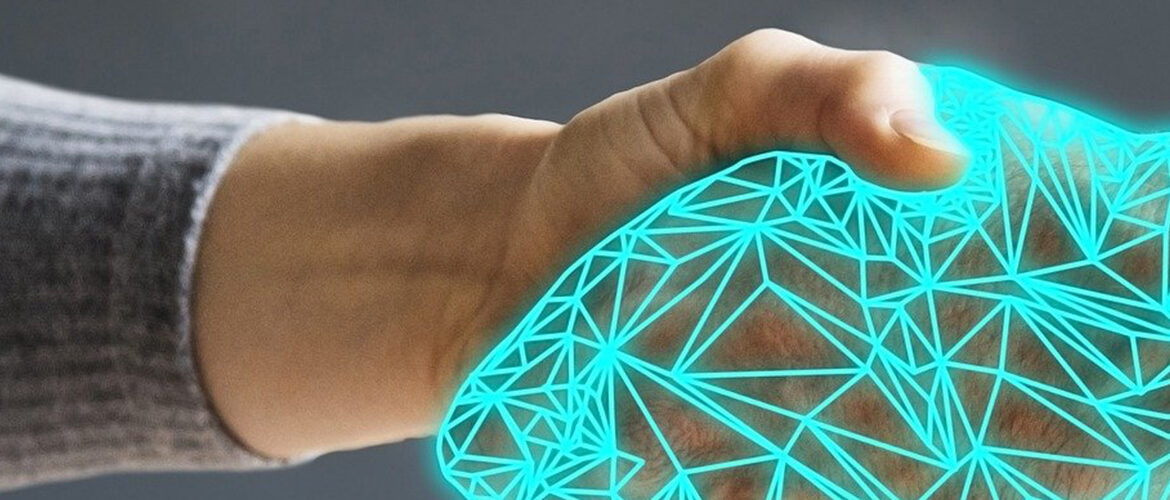Organizers
- Wendy MacKay (Inria)
- Kashyap Todi (Aalto University)
- Antti Oulasvirta (Aalto University)
Event Contact
Watch the Recording
You can now watch the recording of the entire event at: https://youtu.be/pwOy6KKh_tk.
The total duration of the video is 2 hours 40 minutes.
Attend the Event
Event Description
Recent developments have enabled humans and AI-based systems to cooperatively work towards joint goals in interactive and collaborative settings. They have not only showcased various application domains and use-cases for such interactive capabilities but also highlighted several issues and opportunities. Experts from Psychology, HCI, AI, and Computer Science will discuss some current progress, challenges, opportunities, and a vision for the future of such systems from a human-centered perspective.
Programme
| Time | Speaker | Description |
|---|---|---|
| 14:00–14:05 | Kashyap Todi | Welcome |
| 14:05–14:30 | Wendy Mackay | Plenary Talk: Human–Computer Partnerships |
| 14:30–14:55 | Janet Rafner & Jacob Sherson | Plenary Talk: Hybrid Intelligence |
| 14:55–15:00 | Break | |
| 15:00–15:10 | Alessandro Saffiotti | Short Talk: Human-AI in artistic co-creation |
| 15:10–15:20 | Janin Koch | Short Talk: Visual Design Ideation with Machines |
| 15:20–15:30 | Silvia Miksch | Short Talk: Guide Me in the Analysis: How can Visual Analytics enriched by guidance contribute to gaining insights and decision making |
| 15:30–15:40 | Mohamed Chetouani | Short Talk: Social Learning Agents: Role of Human Behaviors |
| 15:40–16:00 | Panel Discussion | |
| 16:00 | Event Close | |
Meet the Speakers and Organisers
Abstracts
Human–Computer Partnership (Wendy Mackay)
In this talk, Wendy Mackay will talk about moving beyond the traditional 'human-in-the-loop' perspective, which focuses on using human input to improve algorithms. She will share her vision for 'computer-in-the-loop', where intelligent algorithms serve to enhance human capabilities.
Hybrid Intelligence: First Rate Humans, Not Second Class Robots (Janet Rafner & Jacob Sherson)
In light of the recent deep learning driven success of AI in both corporate and social life there has been a growing fear of human displacement and a related call to develop IA (intelligence augmentation) rather than pure AI. In reality, most current AI applications have a significant human-in-the-loop (HITL) component and are therefore arguably more IA than AI already. From here, there are currently two trends in the field. In one trend, increasing machine autonomy is pursued, first by placing the human-on-the-loop in order to verify the result of the machine computation and then by hoping to take the human completely out of the loop, as in the pursuit of artificial general intelligence. Two main challenges of this approach are a) the value-alignment problem (how do we ensure that the machine satisfies human preferences when we often cannot even express or agree on these ourselves) and b) the extensive human deskilling that often accompanies algorithmic advances. In our talk, we will discuss how these two challenges may potentially be overcome by the second trend: the pursuit of increasingly intertwined human-machine operation. We will present and give examples of an operational and ambitious framework, hybrid intelligence (HI), in which the two interact synergistically and continually learn from each other.
Human-AI Collaboration in Artistic Co-creation (Alessandro Saffiotti)
Live artistic performance, like music, dance or acting, provides an excellent domain to observe and analyze the mechanisms of human-human collaboration. In this short talk, I use this domain to study human-AI collaboration. I propose a model for collaborative artistic performance, in which an AI system mediates the interaction between a
human performer and an artificial one. I will illustrate this model with case studies involving different combinations of human musicians, human dancers, robot dancers, and a virtual drummer.
Visual Design Ideation with Machines (Janin Koch)
In this short talk, Janin Koch will talk about 'MayAI', 'ImageSense', and her current postdoctoral research on how humans and machines can collaborate during visual design ideation, and how this collaboration enhances the creative process and results.
Guide Me in the Analysis: How can Visual Analytics enriched by guidance contribute to gaining insights and decision making (Silvia Miksch)
Visual Analytics is "the science of analytical reasoning facilitated by interactive visual interfaces." Guidance is a "computer-assisted process that aims to actively resolve a knowledge gap encountered by users during an interactive visual analytics session.” I will illustrate how guidance-enriched Visual Analytics contribute to gaining insights and decision making.
Social Learning Agents: Role of Human Behaviors (Mohamed Chetouani)
There are increasing situations in which humans and AI systems are acting, deciding and/or learning. In this short talk, we discuss approaches and models able to capture specific strategies of humans while they are teaching agents. We will see how social learning based approaches make it possible to take into account such strategies in the development of interactive machine learning techniques and in particular when it comes to social robotics.
Network
The Humane AI Net project funded by the European Union Horizon 2020 program aims to bring together the European AI community to develop the scientific foundations and technological breakthroughs needed to shape the AI revolution in a direction that is beneficial to humans both individually and societally, and that adheres to European ethical values and social, cultural, legal, and political norms. Key specific questions that the project addresses are:
- AI systems that „understand” humans,
- AI systems that can interact in complex social settings
- AI systems that enhance human capabilities
- AI systems that empower both individuals and society as a whole carefully balancing individual benefits and social impact of their functionality
- AI systems that respect human autonomy and self-determination
- Ethics and Legal Protection “by design” in complex dynamic AI systems












